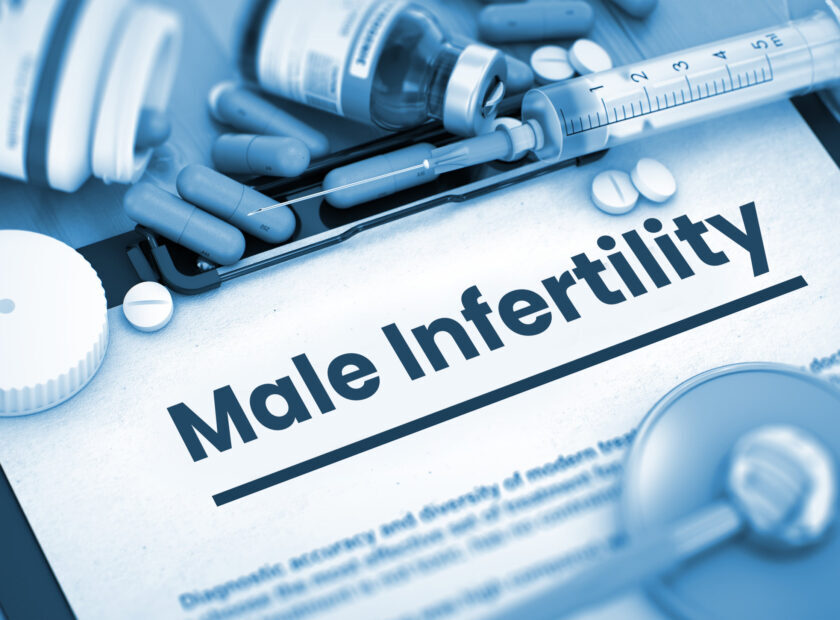
Infertility means not being able to produce a child. It is a reproductive health issue that prohibits a man or woman from being a father or mother of a child. A couple is termed as infertile when they do not conceive a child after making an effort for it for more than 6 months or a year.
Does infertility affect many people?
Yes. According to the Centers for Disease Control and Prevention (CDC), approximately 10% of women (6.1 million) in the United States between the ages of 15 and 44 experience difficulties getting pregnant or maintaining pregnancy. As per the World Health Organisation, around 48 million couples and 186 million individuals are infertile.
Is infertility only a female issue?
No, infertility is not always a woman’s issue. Infertility-related issues can affect both men and women. Women’s issues account for about one third of cases of infertility. Another third of infertility issues are the fault of the male. The causes of the other cases are either unknown or a combination of male and female issues.
What causes infertility in men?
Men’s infertility is typically brought on by:.
- Varicocele – It happens when a man has one or more testicles with excessively large veins. The testicles become warm as a result. The quantity or shape of the sperm may change due to heat.
- Poor sperm count or zero sperm
- Sperm motility
Sometimes a man has sperm-related issues from birth. Ailment or injury can also cause issues to arise later in life. For instance, cystic fibrosis frequently contributes to male infertility.
What increases a man’s risk of infertility?
The general health and way of life of a man can affect the quality of his sperm. The following are some factors that could lower sperm quality or quantity:
- Heavy drinking
- Drugs
- Smoking
- Age
- Pesticides, lead, and other environmental toxins
- Certain health conditions such as the measles, kidney disease, or hormone issues
- Some medications like cancer chemotherapy and radiation therapy
Infertility in women: what are the causes?
Ovulation issues are the primary cause of female infertility in the majority of cases. There would be no eggs for fertilisation absent ovulation. Menstrual cycles that are irregular or nonexistent are some indicators that a woman is not ovulating normally.
PCOS (Polycystic ovarian syndrome) frequently contributes to ovarian dysfunction. A hormone imbalance disorder called PCOS can prevent ovulation from occurring normally. Female infertility is most frequently caused by PCOS. Another reason for ovulation issues is primary ovarian insufficiency (POI). When a woman’s ovaries cease to function normally before the age of 40, POI occurs. Early menopause and POI are not the same thing.
Less frequent factors that affect women’s fertility include:.
- Blocked fallopian tubes brought on by endometriosis, pelvic inflammatory disease, or ectopic pregnancy surgery
- Uterine physical issues
- Uterine fibroids are clumps of muscle and tissue on the uterine walls that are not cancerous.
What increases a woman’s risk of infertility?
There are many factors that can alter a woman’s capacity to conceive. These are as follows:
- Age
- Smoking
- Too much alcohol
- Stress
- Bad nutrition
- Sport preparation
- Unhealthy body weight
- STIs, or diseases spread through sexual contact
- Hormonally altering medical conditions like polycystic ovarian syndrome and primary ovarian insufficiency
What impact does a woman’s age have on her ability to have children?
Many women put off starting a family until their 30s and 40s. In fact, about 20% of American women now have their first child after turning 35. Therefore, age is a growing factor in fertility issues. Women over 35 who are married experience fertility issues in about one-third of cases. There are several ways that growing older reduces a woman’s ability to become pregnant.
- Her ovaries start to produce fewer eggs
- She has fewer eggs left
- The quality of her eggs is lacking
- She has a higher chance of having health issues that could interfere with conception
- She is more susceptible to miscarriage
How long should women try to get pregnant before consulting a fertility specialist?
Most professionals advise at least a year. After six months of trying, women 35 years of age or older should visit their doctors. With each passing year after the age of 30, a woman’s chances of becoming pregnant sharply decline. The risk of infertility is also increased by some health issues. In light of this, women should consult their doctors if they have:
- Irregular or no menstrual cycles
- Extremely painful periods
- Endometriosis
- Inflammatory disease of the pelvis (PID)
- Several miscarriages
Any woman should consult a doctor before attempting to conceive. Doctors can assist you in preparing your body to give birth to a healthy child. They can also provide advice on how to conceive and respond to inquiries about fertility.
How can medical professionals determine if a woman and her partner are having issues with conception?
The infertility will be examined by doctors. A physical examination is required for this. The doctor will also inquire about the sexual and general health histories of both partners. This can occasionally lead to the solution. But frequently, the doctor will need to order additional tests.
Doctors typically start by analysing the semen in men. They examine the quantity, form, and movement of the sperm. A man’s hormone levels might occasionally be tested, according to doctors.
To determine whether a woman is ovulating each month is the first step in the process. The options for doing this are numerous. A woman can monitor her ovulation at home by:
- Tracking changes in her body temperature in the morning for several months
- Keeping track of the appearance of her cervical mucus for many months
- Using a home ovulation test kit, which is accessible at pharmacies or grocery stores
Blood tests can be used by physicians to determine ovulation. Or they could perform an ultrasound on the ovaries. Other fertility tests are available if ovulation is normal.
Typical checks for female fertility include:
- Hysterosalpingogram – An x-ray of the uterus and fallopian tubes. Through the vagina, physicians administer a specialised dye to the uterus. In the x-ray, this dye is visible. When the dye has passed through the uterus and fallopian tubes, doctors can observe to see if it is freely moving. They can use this to discover any physical obstacles that might be preventing conception. The egg may be prevented from passing from the fallopian tube to the uterus by obstructions in the system. The sperm may be prevented from getting to the egg by a block.
- Laparoscopy – A quick procedure to see inside the abdomen. A laparoscope is a small instrument with a light that the doctor uses to perform this. The laparoscope is inserted after a tiny cut is made in the lower abdomen. The ovaries, fallopian tubes, and uterus can all be examined by the doctor using a laparoscope to look for disease and physical issues. By performing a laparoscopy, doctors can frequently detect scarring and endometriosis.
The process of determining the cause of infertility can be drawn out and difficult. The necessary tests may require some time to finish. So don’t worry if the issue isn’t discovered right away.
What medical procedures are used to treat infertility?
Medicine, surgery, artificial insemination, or assisted reproductive technology can all be used to treat infertility. These therapies are frequently combined. Surgery or prescription medications are typically used to treat infertility. Doctors advise particular infertility treatments based on the following things:
- Test outcomes
- How long the couple has been trying to conceive
- Age differences between the man and woman
- The partners’ general well-being
- A partner’s preference
Men’s infertility is frequently treated in the following ways:
- Sexual problems – Doctors can assist men with sexual issues like impotence or early ejaculation. In these situations, behavioural therapy and/or medications may be used.
- Poor sperm count – In some cases, surgery can address the underlying cause of a sperm shortage. In other instances, doctors surgically remove sperm from the male reproductive system. Additionally, antibiotics can be used to treat infections that lower sperm count.
- Sperm movement – If there is a block in the man’s system, sometimes semen will not contain sperm. Surgery can sometimes solve the issue.
Surgery is another option for treating some physical issues in women.
Ovulation issues are treated for women using a variety of fertility medications. Discussing the benefits and drawbacks of these medications with your doctor is crucial. You should be aware of any risks, advantages, and side effects.
What medications are used to treat infertility in women?
Several typical medications are used to treat female infertility. Some of them are as follows:
- Clomiphene citrate (Clomid) – This medication works on the pituitary gland to induce ovulation. Women with polycystic ovary syndrome (PCOS) or other ovulation-related issues frequently use it. This medication should be consumed orally.
- Human menopausal gonadotropin, also known as hMG (Repronex, Pergonal), is a medication frequently prescribed to women who are unable to ovulate as a result of pituitary gland issues. In order to promote ovulation, hMG acts directly on the ovaries. The medication is injected.
- FSH, also known as gonadotropin-stimulating hormone or Follistim, functions similarly to hMG. Ovulation is started by the ovaries as a result of it. Usually, these medications are injected.
- Gn-RH analogs: These medications are frequently prescribed to women who don’t ovulate regularly each month. These medications can also be used by females who ovulate before the egg is prepared. The pituitary gland is affected by gn-RH analogs, which alter when the body ovulates. The most common delivery methods for these medications are injection or nasal spray.
- Metformin (Glucophage) – Doctors prescribe it to women who have PCOS and/or insulin resistance. In women with these conditions, this medication helps lower their high levels of male hormones. This encourages ovulation in the body. Metformin may occasionally be combined with clomiphene citrate or FSH. Typically, this medication is ingested.
- Bromocriptine (Parlodel) – Women who experience ovulation issues because of high prolactin levels are treated with bromocriptine (Parlodel). A hormone called prolactin is what makes milk come out of your body.
A lot of fertility medications raise a woman’s likelihood of having twins, triplets, or other multiples. Multiple pregnancy causes more issues for the expectant mother. The likelihood of multiple foetuses giving birth prematurely is high. The risk of health and developmental issues in premature infants is higher.
At BabyScience IVF Clinics, we treat both Male Infertility and Female Infertility. With our doctors, we help couples to manage their fertility problems and move forward on the path of their parenthood.



